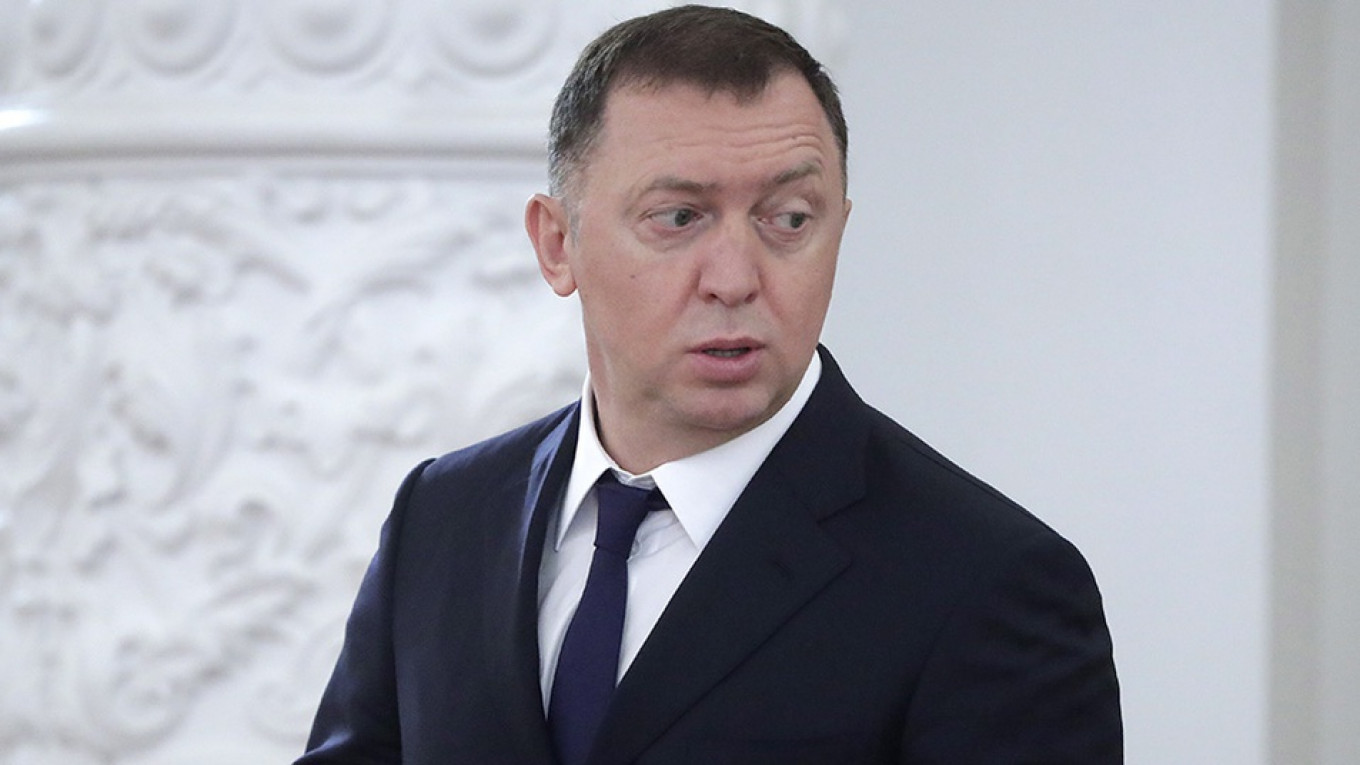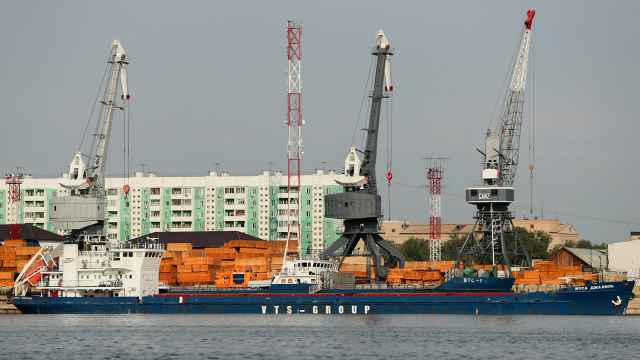On Jan. 27, U.S. President Donald Trump’s administration lifted sanctions on the core empire of Russian tycoon Oleg Deripaska, including aluminum giant Rusal and its parent En+. The companies were the first notable entities to be de-listed since the latest U.S. sanctions batch entered into force.
The U.S. Treasury’s decision to de-list the oligarch's companies has proven highly controversial in Washington, a reflection of the politicization of all Russia-related policy matters in the Trump-Mueller era. However, the agreement between the U.S. Treasury and the firms’ main shareholder, Oleg Deripaska, to lift the sanctions deserves to be examined in its own right.
One must look at what the sanctioning of Oleg Deripaska’s companies in April aimed to achieve in the first place. The point of sanctions is to illicit policy change, and U.S. Treasury Secretary Steve Mnuchin outlined exactly which policies the move aimed to affect when announcing the effort.
“The Russian government operates for the disproportionate benefit of oligarchs and government elites,” Mnuchin said back in April, adding that the aim of the sanctions was to stop “oligarchs and elites profit from this corrupt system."
Put simply, the April 2018 sanctions had two goals: to pressure the Kremlin to curtail its malign activity and make oligarchs share the costs of said activity.
The April 2018 measures were the first to affect those beyond Putin’s innermost circle, as previously sanctions were focused on a small group of individuals who owned homes in the same St. Petersburg suburb as Putin and those who rose from the St. Petersburg mayor’s office with him.
Two other oligarchs listed last April — Viktor Vekselberg and Suleiman Kerimov — are, like Deripaska, not members of this coterie.
Kerimov’s main asset, Polyus Gold, was not affected. One of Russia’s largest miners, the company is London-listed like EN+ but the shares are formally held by his son. Thus, it avoided sanctions.
A possible major fallout for a number of firms in Switzerland controlled by Vekselberg was quickly avoided by reducing Vekselberg’s stake in Renova Holdings. Two existing partners simply increased their share. Vekselberg’s life in Switzerland was somewhat inconvenienced — he had to use his wife’s credit card — but the sanctions did not meaningfully affect his status.
As with Vekselberg’s Swiss firms, EN+, Deripaska’s Rusal and EuroSibEnergo were affected by the sanctions because of their majority ownership structure, not because they were themselves involved in the Magnitsky scandal, the annexation of Crimea, the war in eastern Ukraine, interference in the 2016 U.S. election, the attack on ex-Russian double-agent Sergei Skripal, or other malign activities that have proven to be the main triggers for U.S. sanctions on Russia.
So has the U.S. Treasury’s deal with Deripaska to lift sanctions resulted in any change to his effective control of the companies?
Deripaska’s stake in EN+, the holding company of Rusal and EuroSibEnergo, fell to 44.95 percent. However, his former wife Polina Yumasheva and her father Valentin Yumashev, together control 6.78 percent in EN+. While Deripaska and Polina Yumasheva no longer appear to be living together, nothing indicates that their split has affected their business cooperation.
Add the 3.22 percent held in EN+ by the charity Volnoe Delo — founded and funded by Deripaska — and Deripaska’s effective holding rises to 53.95 percent.
Deripaska’s control is, however, constrained by the requirement set out by the U.S. Treasury that the oligarch hands over 10 percent of his shares’ voting rights to three U.S. nationals. So, in reality, the family can at most own 43.95 percent of the voting-shares. Furthermore, Deripaska is not supposed to receive any dividends until he himself is de-listed, a far greater hurdle.
There might be a way around the divident problem for Deripaska, as EN+'s other shareholders are no strangers to the tycoon. Russia’s state-owned bank VTB holds about 24 percent of the shares in EN+. Unlike the case with Deripaska, there are no restrictions put on the bank to take dividents or other profits out of EN+.
VTB’s and Deripaska’s interests align; after all, it is the Kremlin that allowed Deripaska to retain control of his assets in the first place. VTB could easily find a way to reimburse him if it wishes to do so, for example by writing off associated debts.
The one major new shareholder in EN+ is Glencore, a long-time Rusal partner. Glencore is no stranger to dealing with sanctioned entities, arguably it has a more extensive track record in working with them than any other multinational company. It recently agreed to pay out dividends to another target of U.S. sanctions, its longtime partner in the Democratic Republic of Congo, by avoiding the U.S. financial system. The U.S. Treasury appeared to turn a blind eye to the transaction, a worrying precedent for the future.
The April 2018 sanctions made clear that no jurisdiction was beyond Treasury’s reach: not Switzerland, nor Russia. In doing so, it even encroached upon the Kremlin’s theretofore exclusive remit to oversee the distribution of spoils within Russia.
This was a major policy achievement for Washington, as establishing that remit was one of the key policy goals of Putin’s first two terms.
But the initial aim of the sanctions was to curb Kremlin’s malign activity and make it clear that oligarchs would share the costs of such actions. From the U.S. perspective, Kremlin’s malign activity continues apace. Deripaska has faced costs, but in reality, the same actors will control the firms’ future.
While his dividends are blocked, there is reason to be concerned that he may find a way around this. Thus, the agreement to lift sanctions on the three firms has failed to achieve the very goals the U.S. Treasury aimed to achieve when announcing them last April.
The views and opinions expressed in opinion pieces do not necessarily reflect the position of The Moscow Times.
A Message from The Moscow Times:
Dear readers,
We are facing unprecedented challenges. Russia's Prosecutor General's Office has designated The Moscow Times as an "undesirable" organization, criminalizing our work and putting our staff at risk of prosecution. This follows our earlier unjust labeling as a "foreign agent."
These actions are direct attempts to silence independent journalism in Russia. The authorities claim our work "discredits the decisions of the Russian leadership." We see things differently: we strive to provide accurate, unbiased reporting on Russia.
We, the journalists of The Moscow Times, refuse to be silenced. But to continue our work, we need your help.
Your support, no matter how small, makes a world of difference. If you can, please support us monthly starting from just $2. It's quick to set up, and every contribution makes a significant impact.
By supporting The Moscow Times, you're defending open, independent journalism in the face of repression. Thank you for standing with us.
Remind me later.








